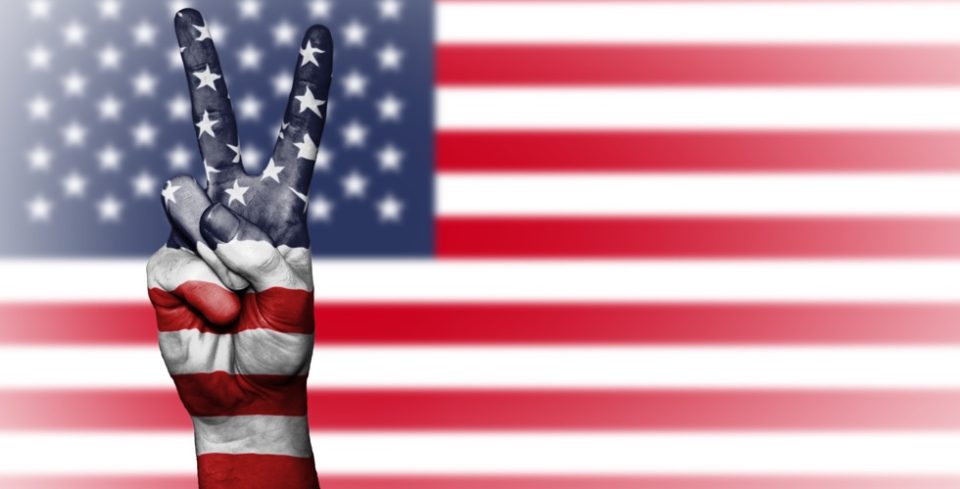This essay continues the Christian Theology and Public Policy Course by John Cobin, author of the books Bible and Government and Christian Theology of Public Policy. This column is the fourth segment of a five-part series dealing with Christian perspectives on nations and nationalism.
It is error to comprehend the United States of America as a nation in a biblical sense. America’s territory contains people from many nations, all falling under the political authority of the Constitution. Even though many of God’s people are also Americans it is incorrect to equate the American people with God’s people. Moreover, the territory of the United States is not the special or promised “land” of the people of God. Territory does not become sacred on account of some Christians inhabiting it.
Regrettably, many modern preachers have failed to grasp these facts. Two passages of Scripture commonly twisted in contemporary sermons are: “If My people who are called by My name will humble themselves, and pray and seek My face, and turn from their wicked ways, then I will hear from heaven, and will forgive their sin and heal their land” (2 Chronicles 7:14) and “Blessed is the nation whose God is the Lord, the people He has chosen as His own inheritance” (Psalm 33:12). These verses are inappropriately preached or interpreted as follows: “If Americans will humble themselves, and pray and seek God’s face, and turn from their wicked ways, then God will hear from heaven, and will forgive America’s national sins and heal the country.” Further, the God of the Bible is purported to be America’s God and, as a result, many Americans presume that the American people have been chosen as God’s inheritance. From these errors emerge the underlying specious idea that certain “national sins”—which occur within arbitrary and variable political boundaries (e.g., the United States)—will lead to divine judgment. Nonetheless, “national repentance” is possible when sought in earnest.
Nevertheless, there are no such national sins, and no national repentance. The Bible does not indicate that God any longer deals with nations as He did under the Old Covenant. He used to deal uniquely with the nation of Israel (i.e., the “people” and the “inheritance” referred to in 2 Chronicles 7:14 and Psalm 33:12), often violently opposing and dispossessing the Gentile nations. For instance, it was said that “the Lord strikes the nations who do not come up to keep the Feast of Tabernacles” (Zechariah 14:18). Certainly, Gentiles could abandon their pagan ways and join Israel, as was the case with Rahab the Canaanite, Ruth the Moabitess, and those Jews who heard Peter preach in Jerusalem described as “devout men, from every nation under heaven” (Joshua 6:25; Hebrews 11:31; Ruth 1:22; Acts 2:5). But these individuals were the exception rather than the rule under the Old Covenant. Now God deals with nations by calling out his elect from every nation—forming a new and holy nation called the church—and abandoning the rest to eternal condemnation. Thus, passages like 2 Chronicles 7:14 and Psalm 33:12 have no more application to the political constituents of America than they do to political constituents of largely Muslim Indonesia, largely pagan New Guinea and Madagascar, or largely Roman Catholic Paraguay and Argentina.
A similar critique may be leveled at the abuse of the infamously mistreated verse: “Righteousness exalts a nation, but sin is a reproach to any people” (Proverbs 14:34). This verse should not be interpreted that the political realm America will be exalted when its decrees are righteous. It means that blessing will follow when a family is converted to Christ, and then a clan follows suit, and finally over time (perhaps encompassing several generations), an entire tribe or larger ethnic aggregate “nation” may be depicted as faithful. At that point, the righteousness of those people exalts them both temporally and eternally. One may see examples of this blessing (or imperfect tendencies toward it) in the people of Judah under Josiah and the people of Nineveh, as well as the households of Moses, Samuel, David, Lydia, and the Philippian jailor (2 Kings 23:4-24; Jonah 3:5-10; Hebrews 3:2, 5; 1 Samuel 2:35; 1 Samuel 22:14; Acts 16:15; Acts 16:34). Widespread good character and habits among any ethnic group have an uplifting effect.
Conversely, sinful habits and proclivities are a snare to any ethnic group: “Do not be deceived: ‘Evil company corrupts good habits’” (1 Corinthians 15:33). Remember how Paul warned Titus about the character of the people of Crete: “Cretans are always liars, evil beasts, lazy gluttons” (Titus 1:12), and how God debilitated Pharaoh on account of Sarai: “But the Lord plagued Pharaoh and his house with great plagues because of Sarai, Abram’s wife” (Genesis 12:17). Modern America contains many ethnic groups—nations—which have many bad habits. But the true Christian nation in America is no more implicated by the evils of its neighbors than Lot was in Sodom, Israel was in Egypt, Judah was in Babylon, or Christians were in Rome. It is not the fault of Christians that their neighbors practice sin. Of course, individual Christians may fall into the sins of the nations around them (2 Kings 17:15), but they can and should remain holy (Romans 6:1; 1 Corinthians 10:13; Hebrews 12:14).
Originally published in The Times Examiner on September 21, 2005.



), //libertarianchristians.com/wp-content/plugins/smartquizbuilder/includes/images/template6-latest.jpeg))

), https://libertarianchristians.com/wp-content/plugins/smartquizbuilder/includes/images/template6-latest.jpeg))


;?>/smartquizbuilder/includes/images/sqb-registration-img.jpg)

